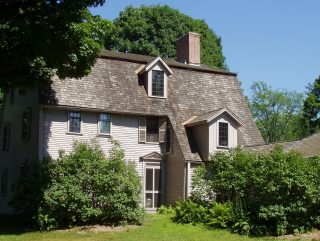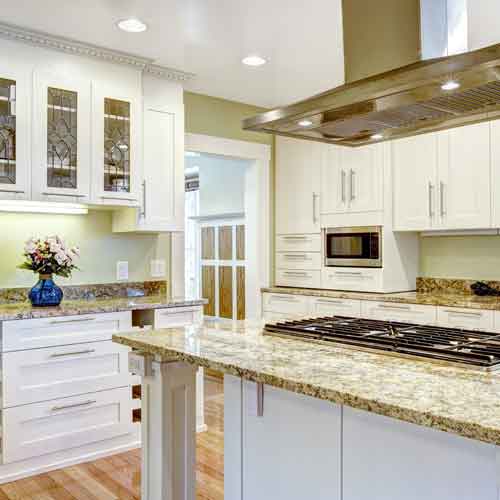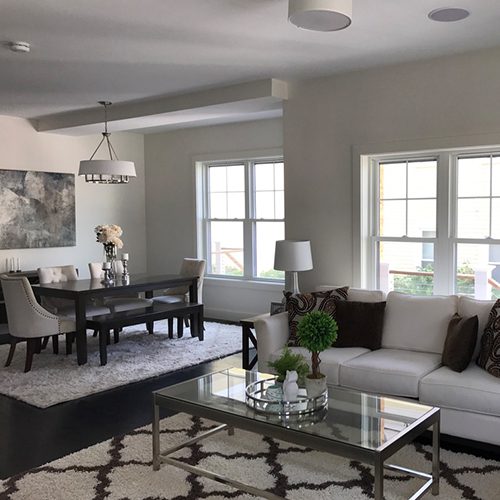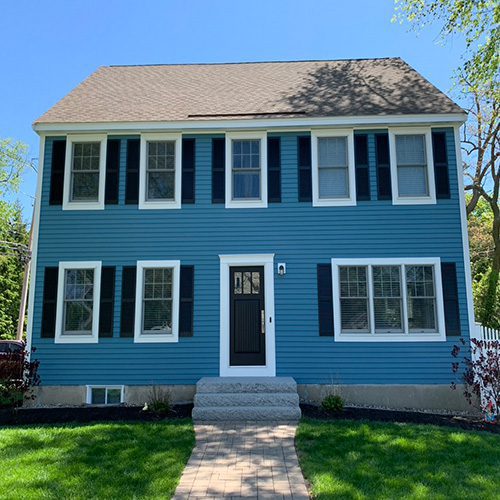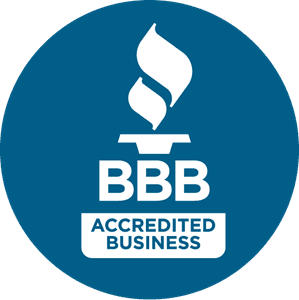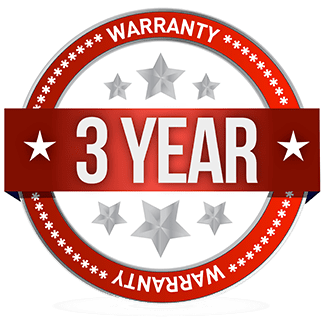Concord Painting Company
★★★★★
Proline Painting Company: Your Trusted Painting Contractor in Concord, MA
In Concord, MA, when it comes to top-quality painting services, Proline Painting Company stands as a benchmark. Our professional team of skilled painters caters to both residential and commercial clients, delivering results that not only meet but exceed expectations. The Proline Painting Company, based in Concord, MA, is a one-stop solution for all your painting needs, promising you an outcome that’s nothing short of perfect.
Do You Have These Problems?
- Difficulty finding a reliable painting company that delivers on their promise of quality?
- Experiencing delays and lack of professionalism from your current painting service?
- Struggling with painting companies that overcharge and fail to provide value for your money?
- Having trouble finding a painting service that offers both residential and commercial services?
- Concerned about the environmental impact of your painting projects?
Local Painting Company: Proline Painting Company — Concord, MA
Proline Painting Company is proud to serve Concord, MA as a local painting company with a solid reputation. With over a decade in business, we’ve built a name for ourselves by consistently delivering premium quality painting services. Our team comprises professionals who bring along years of experience, skill, and a deep understanding of how color impacts a space. As a local company, we’re deeply invested in our community and strive to improve it one painting project at a time.
Commercial Painting Services
At Proline Painting Company, we understand the unique requirements that commercial painting projects entail. Our Concord team is trained to deliver fast and efficient services without disrupting your business operations. We handle everything from offices, retail stores, restaurants to large commercial complexes. With our commercial painting services, we guarantee a visually appealing workspace that embodies your brand identity and enhances productivity.
Residential House Painting Services
Home is where the heart is, and at Proline, we take that to heart. Our residential painting services are designed to transform your home into a space that reflects your personality and style. We treat every project with the same level of importance, whether it’s a single room or the entire house. Our professional painters in Concord work diligently to ensure a clean, efficient, and timely completion of the project, resulting in a beautifully painted home that you can be proud of.
Painting Contractor Process
At Proline, we follow a systematic painting process to deliver top-notch results. Our painting process starts with an in-depth consultation where we understand your vision and requirements. We then prepare the area by protecting furniture, fixtures, and flooring, followed by surface preparation, which includes washing, scraping, sanding, and priming as needed. The final step is the application of the chosen paint in a meticulous manner. Our transparent process ensures you’re aware of each step we undertake to bring your vision to life.
Concord’s Most Affordable Painters Rates
Our commitment to our clients extends to our pricing as well. At Proline, we believe in providing exceptional service at fair prices. Our painting company rates are competitive and transparent, with no hidden costs. We provide detailed estimates upfront, allowing you to understand exactly what you’re paying for. Our goal is to offer top-tier painting services that deliver excellent value for your investment.
5 Star Rated Painting Company Reviews
We take immense pride in the positive reviews we’ve received from our satisfied clients. Their words not only inspire us but also serve as a testament to our commitment to excellence. Our painting company reviews reflect our high standard of service, our professional approach, and our attention to detail. We encourage prospective clients to read these reviews to understand why Proline is a top-rated painting company in Concord, MA.
Searching For a Painting Company Near You
If you’re searching for a reliable, professional, and affordable painting company near you, look no further than Proline Painting Company. Based in Concord, MA, we offer comprehensive painting services to meet a variety of needs. We’re just a call away from transforming your space with high-quality, long-lasting paint jobs.
Painting Company Jobs In Concord, MA
At Proline, we believe that our strength lies in our team. We’re always on the lookout for dedicated individuals to join us in delivering outstanding painting services. If you’re looking for rewarding painting company jobs, we encourage you to explore the opportunities at Proline. We offer a supportive work environment, competitive pay, and opportunities for growth.
Eco-friendly Painting Company
As an eco-friendly painting company in Concord, we are committed to minimizing our environmental impact. We use low-VOC or VOC-free paints whenever possible and adhere to practices that reduce waste. Our goal is to deliver beautiful paint jobs while respecting the planet and contributing to a healthier environment.
Beloved House Painters in Concord, MA
5-Rated On Google For Painting Contractors
Your home is not just a house and a structure with walls, ceilings, doors, rooms and windows but it serves as an expression of yourself, your character, and your personality. Our painting contractors have carefully picked local house painters who are ready to start a painting project with you! These expert painters will make sure that any painted room is a pleasant experience. At Proline Painting Service, we know that you will not settle for less, and that is why we have to ask you to consider one of the most respected painting contractor in Concord, MA.
- Concord Painting
- Full Service Painting Company
- Painting Services
- Concord Painters Cost & Pricing
- Commercial Painters
- Painting Contractors
- Commercial Painting Contractors
- Exterior Painting
- Interior Painting
- Cabinet Painting
- Concord Contractors
- General Contractor
- Home Remodeling Contractors
- Remodeling Contractors
- Drywall Contractors
- Kitchen Remodeling
- Bathroom Remodeling
- Basement Remodeling
- Office Painters
RESIDENTIAL & COMMERCIAL
Concord Painting Company
Painting Company FAQs
How much does your painting service cost?
Every painting project is unique, and the cost can vary based on the size of the area, the complexity of the work, and the type of paint used. We provide a detailed, no-obligation estimate after assessing the project.
Do you offer commercial and residential painting services?
Yes, we provide both commercial and residential painting services. Our team has the expertise to handle projects of all sizes and complexities.
How long does a painting job usually take?
The duration of a painting job depends on several factors, including the size and condition of the area to be painted and the type of paint used. Once we assess your project, we can provide a more accurate timeline.
Can you provide references or examples of previous work?
Absolutely! We are more than happy to share references and examples of our work. Customer satisfaction is our top priority, and we are proud of the work we do.
What type of paint do you use?
We use only high-quality paints from reputable manufacturers. The specific type and brand of paint will depend on the project requirements and your preference.
Are your painters insured and licensed?
Yes, all our painters are fully insured and licensed. We believe in maintaining the highest standards of safety and professionalism in all our projects.
How do you prepare the area for painting?
We follow a thorough preparation process that includes covering furniture and fixtures, cleaning the surfaces, and doing any necessary repair work. Proper preparation is crucial for achieving the best results.
Do you offer a guarantee on your work?
Yes, we stand behind our work and offer a satisfaction guarantee. If there is any issue with the work done, we are committed to making it right.
Can you help with color selection?
Absolutely! We offer color consultation services to help you choose the perfect color palette that matches your taste and complements your space.
Are you an eco-friendly painting company?
Yes, we are committed to eco-friendly practices. We use environmentally-friendly paints and ensure our processes minimize waste and impact on the environment.
How do I choose a painting company?
Choosing a painting company involves considering factors such as experience, reputation, the range of services offered, pricing, and their approach towards customer service. It is also advisable to check reviews and ask for references.
How much do painting companies usually charge?
The cost of painting services varies depending on the scope and complexity of the project. Most companies provide a detailed estimate after assessing the project, allowing you to understand the costs involved.
What questions should I ask a painting company?
You should ask about their experience, licensing and insurance, the type of paints they use, their preparation and cleanup process, and if they offer a warranty or guarantee on their work.
Are there eco-friendly painting companies?
Yes, many painting companies, like Proline Painting Company, are committed to eco-friendly practices. They use environmentally-friendly paints and adopt procedures that reduce waste and minimize environmental impact.
What services do painting companies offer?
Painting companies offer a range of services including interior and exterior painting, commercial and residential painting, color consultation, surface preparation, and more.
How long do painting jobs take?
The duration of painting jobs depends on various factors such as the size of the project, the condition of the surfaces, and the type of paint used. A detailed estimate from the company should provide an approximate timeline.
How do painting companies prepare the area?
Painting companies prepare the area by cleaning and repairing the surfaces, protecting furniture and fixtures, and setting up equipment. A thorough preparation ensures a smooth painting process and superior results.
What type of paint is best for my project?
The best type of paint for your project depends on the surface to be painted, the desired finish, and the environment. A consultation with the painting company can help determine the best options for your specific needs.
Do painting companies provide color consultation?
Many painting companies provide color consultation services to help clients choose the perfect color scheme for their space. They consider factors like lighting, décor, and personal preferences to provide suitable recommendations.
Are all painting companies insured and licensed?
Reputable painting companies are insured and licensed to protect their clients and employees. It’s important to verify this information before hiring a painting company.
Concord, MA Facts
Concord OVERVIEW
Concord, Massachusetts | |
|---|---|
Town | |
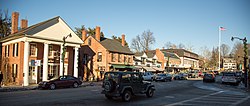 View of Concord’s Main Street, looking east toward Monument Square | |
 Seal | |
| Motto(s): Quam Firma Res Concordia (Latin) “How Strong Is Harmony” | |
 Location in Middlesex County, Massachusetts | |
 Concord, Massachusetts | |
| Coordinates: 42°27′37″N 71°20′58″W / 42.46028°N 71.34944°W | |
| Country | United States |
| State | Massachusetts |
| County | Middlesex County |
| Settled | 1635 |
| Incorporated | September 12, 1635 |
| Founded by | Peter Bulkley and Simon Willard |
| Government | |
| • Type | Open town meeting |
| Area | |
| • Total | 25.9 sq mi (67.4 km2) |
| • Land | 24.9 sq mi (64.5 km) |
| • Water | 1.0 sq mi (2.5 km2) |
| Elevation | 141 ft (43 m) |
| Population (2020) | |
| • Total | 18,491 |
| • Density | 710/sq mi (270/km) |
| Time zone | UTC−5 (Eastern) |
| • Summer (DST) | UTC−4 (Eastern) |
| ZIP Code | 01742 |
| Area code | 351 / 978 |
| FIPS code | 25-15060 |
| GNIS feature ID | 0619398 |
| Website | www.concordma.gov |
Concord is a town in Middlesex County, Massachusetts, in the United States. At the 2020 census, the town population was 18,491. The United States Census Bureau considers Concord part of Greater Boston. The town center is near where the confluence of the Sudbury and Assabet rivers forms the Concord River.
The area that became the town of Concord was originally known as Musketaquid, an Algonquian word for “grassy plain.” Concord was established in 1635 by a group of English settlers; by 1775, the population had grown to 1,400. As dissension between colonists in North America and the British crown intensified, 700 troops were sent to confiscate militia ordnance stored at Concord on April 19, 1775. The ensuing conflict, the battles of Lexington and Concord, were the incidents (including the shot heard round the world) that triggered the American Revolutionary War.
A rich literary community developed in Concord during the mid-19th century, centered around Ralph Waldo Emerson. Emerson’s circle included Nathaniel Hawthorne, Louisa May Alcott and Henry David Thoreau. Major works written in Concord during this period include Alcott’s novel Little Women, Emerson’s essay Self-Reliance, and Thoreau’s Walden and Civil Disobedience. In this era, the now-ubiquitous Concord grape was developed in Concord by Ephraim Wales Bull.
In the 20th century, Concord developed into an affluent Boston suburb and tourist destination, drawing visitors to the Old North Bridge, Orchard House and Walden Pond. The town retains its literary culture and is home to notable authors, including Doris Kearns Goodwin, Alan Lightman and Gregory Maguire. Concord is also notable for its progressive and environmentalist politics, becoming in 2012 the first community in the United States to ban single-serving PET bottles.
History
Prehistory and founding
The area which became the town of Concord was originally known as “Musketaquid”, situated at the confluence of the Sudbury and Assabet rivers. The name was an Algonquian word for “grassy plain”, fitting the area’s low-lying marshes and kettle holes. Native Americans had cultivated corn crops there; the rivers were rich with fish and the land was lush and arable. The area was largely depopulated by the smallpox plague that swept across the Americas after Europeans arrived.
In 1635, a group of English settlers led by Rev. Peter Bulkeley and Major Simon Willard received a land grant from the General Court and negotiated a land purchase with the local indigenous tribes. Bulkeley was an influential religious leader who “carried a good number of planters with him into the woods”; Willard was a canny trader who spoke the Algonquian language and had gained the trust of Native Americans. They exchanged wampum, hatchets, knives, cloth, and other useful items for the six-square-mile (16 km) purchase from Squaw Sachem of Mistick, which formed the basis of the new town, called “Concord” in appreciation of the peaceful acquisition.
Battle of Lexington and Concord
The Battle of Lexington and Concord was the first conflict in the American Revolutionary War. On April 19, 1775, a force of British Army regulars marched from Boston to Concord to capture a cache of arms that was reportedly stored in the town. Forewarned by Samuel Prescott (who had received the news from Paul Revere), the colonists mustered in opposition. Following an early-morning skirmish at Lexington, where the first shots of the battle were fired, the British expedition under the command of Lt. Col. Francis Smith advanced to Concord. There, colonists from Concord and surrounding towns (notably a highly drilled company from Acton led by Isaac Davis) repulsed a British detachment at the Old North Bridge and forced the British troops to retreat. Subsequently, militia arriving from across the region harried the British troops on their return to Boston, culminating in the siege of Boston and the outbreak of the war.
The colonists initially publicized the battle as an example of British brutality and aggression; one colonial broadside decried the “Bloody Butchery by the British Troops”. But a century later, the conflict was remembered proudly by Americans, taking on a patriotic, almost mythic status (“the shot heard ’round the world”) in works like the “Concord Hymn” and “Paul Revere’s Ride”. In 1894, the Lexington Historical Society petitioned the Massachusetts State Legislature to proclaim April 19 “Lexington Day”. Concord countered with “Concord Day”. Governor Greenhalge opted for a compromise: Patriots’ Day. In April 1975, Concord hosted a bicentennial celebration of the battle, featuring an address at the Old North Bridge by President Gerald Ford.
Literary history
Concord has a remarkably rich literary history centered in the 19th century around Ralph Waldo Emerson (1803–1882), who moved there in 1835 and quickly became its most prominent citizen. A successful lecturer and philosopher, Emerson had deep roots in the town: his father, Rev. William Emerson (1769–1811), grew up in Concord before becoming an eminent Boston minister, and his grandfather, William Emerson Sr., witnessed the battle at the North Bridge from his house, and later became a chaplain in the Continental Army. Emerson was at the center of a group of like-minded Transcendentalists living in Concord. Among them were the author Nathaniel Hawthorne (1804–1864) and the philosopher Amos Bronson Alcott (1799–1888), the father of Louisa May Alcott (1832–1888). A native Concordian, Henry David Thoreau (1817–1862) was another notable member of Emerson’s circle. This substantial collection of literary talent in one small town led Henry James to dub Concord “the biggest little place in America.”
Among the products of this intellectually stimulating environment were Emerson’s many essays, including Self-Reliance (1841), Louisa May Alcott’s novel Little Women (1868), and Hawthorne’s story collection Mosses from an Old Manse (1846). Thoreau famously lived in a small cabin near Walden Pond, where he wrote Walden (1854). After being imprisoned in the Concord jail for refusing to pay taxes in political protest against slavery and the Mexican–American War, Thoreau penned the influential essay “Resistance to Civil Government”, popularly known as Civil Disobedience (1849). Evidencing their strong political beliefs through actions, Thoreau and many of his neighbors served as station masters and agents on the Underground Railroad.
The Wayside, a house on Lexington Road, has been home to a number of authors. It was occupied by scientist John Winthrop (1714–1779) when Harvard College was temporarily moved to Concord during the Revolutionary War. The Wayside was later the home of the Alcott family (who referred to it as “Hillside”); the Alcotts sold it to Hawthorne in 1852, and the family moved into the adjacent Orchard House in 1858. Hawthorne dubbed the house “The Wayside” and lived there until his death. The house was purchased in 1883 by Boston publisher Daniel Lothrop and his wife, Harriett, who wrote the Five Little Peppers series and other children’s books under the pen name Margaret Sidney. Today, The Wayside and the Orchard House are both museums. Emerson, Thoreau, Hawthorne, and the Alcotts are buried on Authors’ Ridge in Concord’s Sleepy Hollow Cemetery.
The 20th-century composer Charles Ives wrote his Concord Sonata (c. 1904–1915) as a series of impressionistic portraits of literary figures associated with the town. Concord maintains a lively literary culture to this day; notable authors who have called the town home in recent years include Doris Kearns Goodwin, Alan Lightman, Robert B. Parker, and Gregory Maguire.
Concord grape
In 1849, Ephraim Bull developed the now-ubiquitous Concord grape at his home on Lexington Road, where the original vine still grows. Welch’s, the first company to sell grape juice, maintains a headquarters in Concord. The Boston-born Bull developed the Concord grape by experimenting with seeds from some of the native species. On his farm outside Concord, down the road from the Emerson, Thoreau, Hawthorne and Alcott homesteads, he planted some 22,000 seedlings before producing the ideal grape. Early ripening, to escape the killing northern frosts, but with a rich, full-bodied flavor, the hardy Concord grape thrives where European cuttings had failed to survive. In 1853, Bull felt ready to put the first bunches of Concord grapes before the public and won a prize at the Boston Horticultural Society Exhibition. From these early arbors, the fame of Bull’s (“the father of the Concord grape”) Concord grape spread worldwide, bringing him up to $1,000 a cutting, but he died a relatively poor man. The inscription on his tombstone reads, “He sowed—others reaped.”
Plastic bottle ban
On September 5, 2012, Concord became the first community in the United States to approve a ban of the sale of water in single-serving plastic bottles. The law banned the sale of PET bottles of one liter (34 U.S. fl oz) or less starting January 1, 2013. The ban provoked significant national controversy. An editorial in the Los Angeles Times characterized the ban as “born of convoluted reasoning” and “wrongheaded.” Some residents believed the ban would do little to affect the sales of bottled water, which was still highly accessible in the surrounding areas, and that it restricted consumers’ freedom of choice. Opponents also considered the ban to unfairly target one product in particular, when other, less healthy alternatives such as soda and fruit juice were still readily available in bottled form. Nonetheless, subsequent efforts to repeal the ban have failed in open town meetings. An effort to repeal Concord’s ban on the sale of plastic water bottles was resoundingly defeated at a Town Meeting. Resident Jean Hill, who led the initial fight for the ban, said, “I really feel at the age of 86 that I’ve really accomplished something.” Town Moderator Eric Van Loon didn’t even bother taking an official tally because opposition to repeal was so overwhelming. It appeared that upwards of 80 to 90 percent of the 1,127 voters in attendance raised their ballots against the repeal measure. The issue had been bubbling in Concord for several years. In 2010, a ban approved in a town meeting, which wasn’t written as a bylaw, was rejected by the state attorney general’s office. In 2011, a new version of the ban narrowly failed at town meeting by a vote of 265 to 272. The ban on selling water in polyethylene terephthalate (PET) bottles of one liter or less passed in 2012 by a vote of 403 to 364, and a repeal effort in April failed by a vote of 621 to 687.
Geography
According to the United States Census Bureau, the town has a total area of 25.9 square miles (67 km), of which 24.9 square miles (64 km2) is land and 1.0 square mile (2.6 km), or 3.75%, is water. The city of Lowell is 13 miles (21 km) to the north, Boston is 19 miles (31 km) to the east, and Nashua, New Hampshire, is 23 miles (37 km) to the north.
Massachusetts state routes 2, 2A, 62, 126, 119, 111, and 117 pass through Concord. The town center is near the confluence of the Sudbury and Assabet rivers, forming the Concord River, which flows north to the Merrimack River in Lowell. Gunpowder was manufactured from 1835 to 1940 in the American Powder Mills complex extending upstream along the Assabet River.
Government
Local government consists of a five-member executive Select Board and a legislature utilizing open town meeting.
State and federal government
On the federal level, Concord is part of Massachusetts’s 3rd congressional district, represented by Lori Trahan. The state’s senior (Class I) member of the United States Senate is Elizabeth Warren. The junior (Class II) senator is Ed Markey.
Demographics
| Year | Pop. | ±% |
|---|---|---|
| 1850 | 2,249 | — |
| 1860 | 2,246 | −0.1% |
| 1870 | 2,412 | +7.4% |
| 1880 | 3,922 | +62.6% |
| 1890 | 4,427 | +12.9% |
| 1900 | 5,652 | +27.7% |
| 1910 | 6,421 | +13.6% |
| 1920 | 6,461 | +0.6% |
| 1930 | 7,477 | +15.7% |
| 1940 | 7,972 | +6.6% |
| 1950 | 8,623 | +8.2% |
| 1960 | 12,517 | +45.2% |
| 1970 | 16,148 | +29.0% |
| 1980 | 16,293 | +0.9% |
| 1990 | 17,076 | +4.8% |
| 2000 | 16,993 | −0.5% |
| 2010 | 17,668 | +4.0% |
| 2020 | 18,491 | +4.7% |
| * = population estimate. Source: United States census records and Population Estimates Program data. | ||
At the 2000 census, there were 16,993 people, 5,948 households and 4,437 families residing in the town. The population density was 682.0 inhabitants per square mile (263.3/km2). There were 6,153 housing units at an average density of 246.9 per square mile (95.3/km). The racial makeup of the town was 91.64% White, 2.24% African American, 0.09% Native American, 2.90% Asian, 0.02% Pacific Islander, 2.12% from other races, and 0.99% from two or more races. Hispanic or Latino of any race were 2.80% of the population.
There were 13,090 households, of which 37.2% had children under the age of 18 living with them, 65.5% were married couples living together, 7.2% had a female householder with no husband present, and 25.4% were non-families. 22.0% of all households were made up of individuals, and 10.4% had someone living alone who was 65 years of age or older. The average household size was 2.62 and the average family size was 3.08.
25.1% of the population were under the age of 18, 4.2% from 18 to 24, 25.8% from 25 to 44, 28.4% from 45 to 64, and 16.5% who were 65 years of age or older. The median age was 42 years. For every 100 females, there were 100.3 males. For every 100 women aged 18 and over, there were 101.8 men.
In 2017, the median household income was $155,393. About 2.1% of families and 3.9% of the population were below the poverty line, including 3.7% of those under age 18 and 3.3% of those age 65 or over.
Pronunciation
The town’s name is pronounced by its residents as KONG-kərd, in a manner indistinguishable from the American pronunciation of the word “conquered.” In the local dialect, it frequently is heard with the [ər] in the second syllable replaced by [ʏ] ([ˈkɒŋkʏd]).
Economy
Principal employers
According to Concord’s 2016 Comprehensive Annual Financial Report, the principal employers in the town are:
| # | Employer | # of Employees |
|---|---|---|
| 1 | Emerson Hospital | 1,731 |
| 2 | Concord Meadows Corporate Center (building complex with multiple tenants) | 1,050 |
| 3 | Newbury Court (senior living facility) | 290 |
| 4 | Care One at Concord (nursing and assisted living facility) | 166 |
| 5 | Middlesex School (coeducational private high school) | 197 |
| 6 | Harvard Vanguard Medical Associates | 162 |
| 7 | Concord Academy (coeducational private high school) | 165 |
| 8 | Hamilton, Brook, Smith, & Reynolds, P.C. (intellectual property law) | 75 |
Transportation
Concord and West Concord stations are served by the MBTA’s Fitchburg Line. Yankee Line provides commuter bus service between Concord and Boston.
Sister cities
Concord’s sister cities are:
- Nanae, Japan
- Saint-Mandé, France
Points of interest
- Barrett’s Farm
- Reuben Brown House, home of notable revolutionist
- Concord Art Association
- Concord Free Public Library
- Concord Museum
- Concord Scout House, popular venue for contra dancing and other events
- Concord’s Colonial Inn
- Corinthian Lodge
- Egg Rock, where the Concord River forms at the confluence of the Sudbury and Assabet rivers, accessible by water or land
- Emerson Hospital
- Ralph Waldo Emerson House
- Estabrook Woods
- Fairyland Pond
- First Parish in Concord
- Great Meadows National Wildlife Refuge
- Massachusetts Correctional Institution – Concord
- Minute Man National Historical Park
- The Minute Man statue
- Northeastern Correctional Center
- The Old Manse, home of Emerson and Hawthorne
- Old North Bridge
- Orchard House
- Punkatasset Hill
- Sleepy Hollow Cemetery
- Walden Pond
- The Wayside, home of Louisa May Alcott, Hawthorne, and Margaret Sidney
- Wheeler-Minot Farmhouse, also known as Thoreau Farm, birthplace of Henry David Thoreau
- Wright’s Tavern
Education
- Concord-Carlisle Regional High School, the local public high school
- Concord Middle School (consisting of two buildings about a mile apart: Sanborn and Peabody)
- Alcott School, Willard School, and Thoreau School, the local public elementary schools
- Concord Academy and Middlesex School, private preparatory schools
- The Fenn School is a 4-9 boys’ school.
- The Nashoba Brooks School is co-ed PK-3 and a girls’ school 4-8.
Notable people
In popular culture
Concord is featured in the 2012 video game Assassin’s Creed 3, and the 2015 video game Fallout 4. The video game Walden, a game, based on Henry David Thoreau’s Walden, is set in the town.
Scenes from the 2017 comedy film Daddy’s Home 2 were shot at Concord scout house. Parts of the 2019 film Little Women were shot on the Concord River.
Jane Langton’s Homer Kelly murder mystery novels are largely set in Concord. Her 1964 novel ‘The Transcendental Murder’ was described in the Boston Globe in 1975 as ‘a hymn to Concord, its history, its houses, its hallowed ground, its people and patriots, and its ghosts (Emerson and Thoreau)’.
Italian director Lucio Fulci’s 1981 horror film The House by the Cemetery was partly filmed in Concord – notably the Holy Family Church, a Main Street realty and the Concord Free Public Library.
The Mother-Daughter Book Club series of children’s novels is set in Concord.
See also
- National Register of Historic Places listings in Concord, Massachusetts
- Concord, Vermont – name linked to Concord, Massachusetts
- Concord, Ontario – named for a settler who arrived from Concord, Vermont
- USS Concord, name of five ships
References
Further reading
- 1871 Atlas of Massachusetts. by Wall & Gray. Map of Massachusetts. Map of Middlesex County.
- History of Middlesex County, Massachusetts, Volume 1 (A–H), Volume 2 (L–W) compiled by Samuel Adams Drake, published 1879–1880. 572 and 505 pages. Concord article by Rev. Grindall Reynolds in volume 1, pages 380–405.
- Rorabaugh, William J. “Who Fought for the North in the Civil War? Concord, Massachusetts, Enlistments,” Journal of American History 73 (December 1986): 695–701 online
- Lemuel Shattuck (1835). A history of the town of Concord, Middlesex County, Massachusetts. Concord: John Stacy.
External links
- Town of Concord official website
★★★★★

